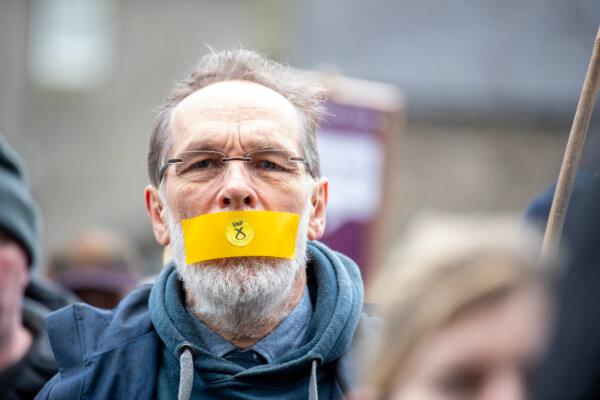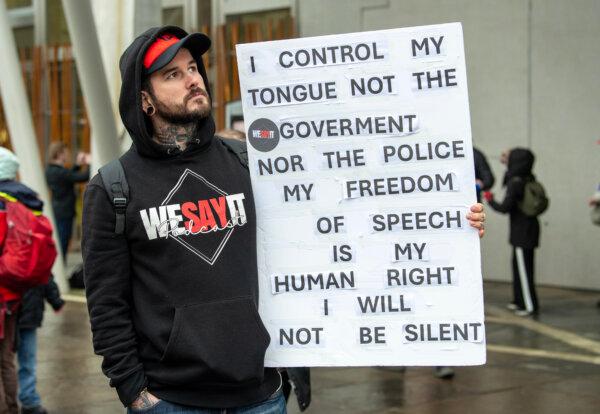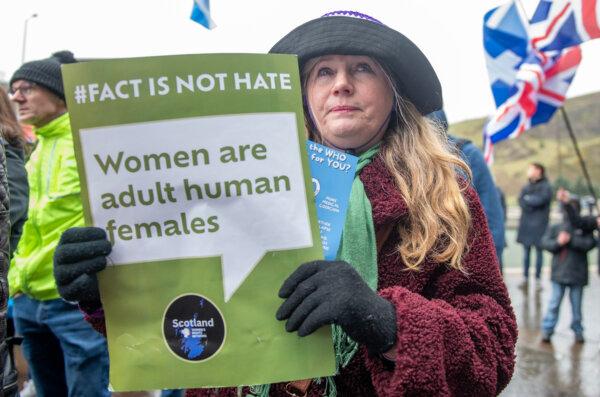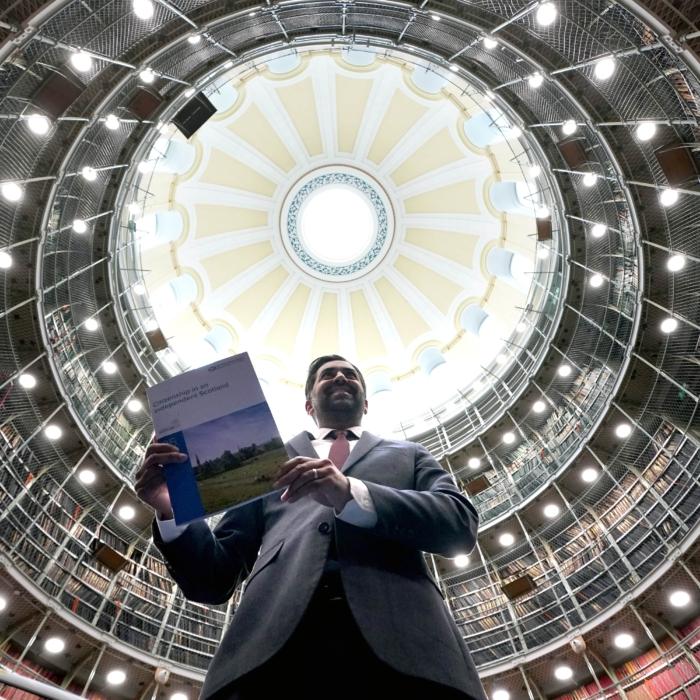The prime minister has defended JK Rowling after she challenged Police Scotland to use the Scottish National Party’s (SNP’s) new hate crime legislation to arrest her for stating biological reality on social media.
“I’m currently out of the country, but if what I’ve written here qualifies as an offence under the terms of the new act, I look forward to being arrested when I return to the birthplace of the Scottish Enlightenment,” she wrote.
“Freedom of speech and belief are at an end in Scotland if the accurate description of biological sex is deemed criminal,” Ms. Rowling said.
‘Arrest Me’
Continuing on X, Ms. Rowling argued, “In passing the Scottish Hate Crime Act, Scottish lawmakers seem to have placed higher value on the feelings of men performing their idea of femaleness, however misogynistically or opportunistically, than on the rights and freedoms of actual women and girls.”The author added that the new legislation was “wide open to abuse” by radical trans activists “who wish to silence those of us speaking out about the dangers of eliminating women’s and girls’ single-sex spaces, the nonsense made of crime data if violent and sexual assaults committed by men are recorded as female crimes, the grotesque unfairness of allowing males to compete in female sports, the injustice of women’s jobs, honours and opportunities being taken by trans-identified men, and the reality and immutability of biological sex.”
She criticised the Scottish Government and police force for pressuring women to “deny the evidence of their eyes and ears” and repudiate biological facts in order to embrace a “neo-religious concept of gender that is unprovable and untestable.”
Rowling’s Comments ‘Not Criminal’
Later on Tuesday, Police Scotland confirmed Ms. Rowling’s posts were deemed “not criminal.”A Police Scotland spokesperson said: “We have received complaints in relation to the social media post. The comments are not assessed to be criminal and no further action will be taken.”
Former SNP Minister Misled Over Hate Crime Law
Fearing that gender-critical feminists could become targets because of this law was also the concern of former SNP minister Ash Regan, who voted for the bill but has recently suggested that she was misled over the plans for the legislation.“After the act was passed, the follow-up meeting to discuss the guidance was a singular event that shaped my future political career,” she wrote, adding, “At that meeting, ministers decided that they would not add clarifying real-world scenarios involving gender-critical feminists as there was nothing to gain, and it would upset the transgender lobby.”
Ms. Regan also implied she was misled over the rationale behind excluding sex as a protected characteristic, being told that women’s rights organisations had sought instead a separate piece of legislation on misogyny which “could assist in dealing with the specific considerations in domestic abuse law.”

Instead, she said that based on conversations with those groups she realised that her government had “broken promises” to consult with them, and that “many had also wanted sex to be included in this bill, as I had first assumed, but my then-boss had convinced me that my view wasn’t representative.”
Protests Against Hate Crime Law Outside Holyrood
Around 300 people protested outside Holyrood, the Scottish Parliament, against the hate crime law on Monday, with demonstrators branding Scotland “a dictatorship.”Edinburgh resident Nick Mitchell, 31, said despite the prospect of a seven-year prison sentence, he was prepared to face trial for free speech.

“I’m against every aspect of it, there’s no need for it. I’m not a racist or a transphobe but I call a spade a spade, and I’m prepared to go to jail for it. I’ve got contingency plans. I’ll go to court in front of a jury for my human rights,” Mr. Mitchell said.
“You have to be well informed to fight the totalitarianism in this country. I have the right to say what I wish,” he added.

Sally Wainwright, 70, from Scottish Lesbians said she knew of women who were now afraid of losing their jobs because they had shared posts on social media where they said they wanted to maintain women-only spaces.
“The Scottish Government legislative programme has been about giving men more rights to interfere with what were women’s’ rights, and giving men more rights to come into women’s spaces,” Ms. Wainwright said.
Artist Mark Leslie called the law “the opposite of the Scottish Enlightenment,” saying, “The church and state should have no power over what people are allowed to say.”
On Monday, the Scottish Government said the new measure will “tackle the harm caused by hatred and prejudice” and will “provide greater protection for victims and communities.”
“Protections for freedom of expression are built into the legislation passed by Parliament and these new offences have a higher threshold for criminality than the long-standing offence of stirring up racial hatred, which has been in place since 1986,” it said.







